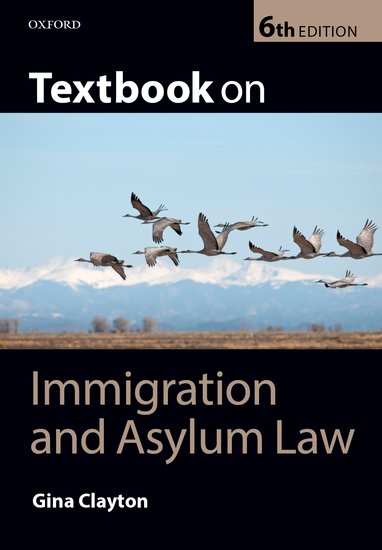By Gina Clayton
Immigration it seems is always in the headlines. While UKIP and others make political waves with their opposition to European free movement, immigration is said to be one of the biggest issues of voter concern. However, the issues that make the headlines are only a tiny part of the picture. Restricting immigration is treated as an uncontroversial objective. Some air time, though less, is given to the damage done to migrants by restrictive laws and policies. Very little attention is given to the damage done to the social fabric by those same laws and policies, and to the reality that measures targeting migrants have an adverse effect on all of us.
In the last months of 2013 and the first of 2014 the Immigration Bill made its way through Parliament. Surprisingly, as immigration was a dominant political theme at that time, its provisions received minimal media attention. Provisions of the Immigration Act 2014 include:
- All rights of appeal against immigration decisions are abolished, except where the decision is to refuse international protection or where removal would breach the Refugee Convention or the appellant’s human rights.
- Banks and building societies are prohibited from opening accounts for individuals ‘who require leave to enter or remain in the UK but do not have it’.
- Driving licences may not be issued to those who require leave but do not have it.
- Charges for health care are to be levied on all migrants.
- Landlords will be subject to penalties if they let property to individuals who ‘require leave to enter or remain in the UK but do not have it’.
The abolition of rights of appeal against immigration decisions comes after years of attrition of immigration appeal rights, and it is only this previous attrition that reduces the impact of these new measures.

Interestingly, an earlier episode of attrition of appeal rights was commented upon by Tony Blair in 1992:
“It is a novel, bizarre and misguided principle of the legal system that if the exercise of legal rights is causing administrative inconvenience, the solution is to remove the right. […] When a right of appeal is removed, what is removed is a valuable and necessary constraint on those who exercise original jurisdiction. That is true not merely of immigration officers but of anybody.”
Some effects of s.15 Immigration Act 2014 can be predicted:
- There will be no independent remedy for an individual who has suffered due to a mistake.
- There will be less incentive to improve Home Office decision-making.
- Studies, work, and life plans of migrants and their families will be disrupted.
- Employers and universities may lose employees and students.
- Judicial review will likely proliferate.
When a student’s studies are prematurely ended or a specialist worker has to leave the country, not only they but others around them are affected. As well as the employer or university, friendships, treatment plans, agreements with landlords, voluntary work obligations, all are disrupted. Migrants do not live in isolation.
Most of us can accommodate to misfortune, but injustice is harder to live with. If our friend, our student or our colleague has not been able to put their case, what is the effect on our confidence in our own system of government? There is no right to be heard. Does this not have an impact on our belief in what are famously described as ‘British values’?
The prohibition on holding a driving licence, opening a bank or building society account not only affects the person who cannot get access to these basic features of ordinary life in the UK, it also affects the person who must decide whether to issue a licence or open an account.
A bank or building society employee must now assess a potential customer’s immigration status. Whether they wish to do so or not, the staff member is exercising a form of internal immigration control.
Bank and building society accounts have become essential to live ordinary life in the United Kingdom. People will be denied access to these facilities on faulty grounds. Bank and building society employees will find that their relationship with their customers has changed from service to scrutiny. All of us will be subject to immigration status checks.
The measures restricting access to private tenancies, bank and building society accounts and driving licences are not, as such, immigration control. They are penalties on those already resident. They apply not only to government matters but also to purely commercial and private transactions. They insert mutual surveillance into social relationships.
It was revealed by Sarah Teather MP that the government working group some of whose policies found their way into the Immigration Act was called ‘the Hostile Environment Working Group’. In the Immigration Act we are being recruited to the project of the hostile environment. We are required to treat other people as disentitled, not to a government benefit, which in the end we know is determined by government, but to a private facility. This asks us to change our perceptions of each other, and as such is hostile to us all.
Gina Clayton works on European asylum and migration projects, including reports for the Fundamental Rights Agency and the AIDA database, chairs refugee charities in South Yorkshire, and is an OISC adviser on asylum law. She is the author of Textbook on Immigration and Asylum Law.
Subscribe to the OUPblog via email or RSS.
Subscribe to only law articles on the OUPblog via email or RSS.
Image credit: Gavel. By Kuzma, via iStockphoto.


Recent Comments
There are currently no comments.